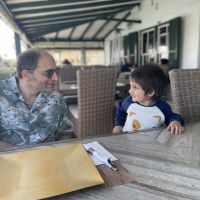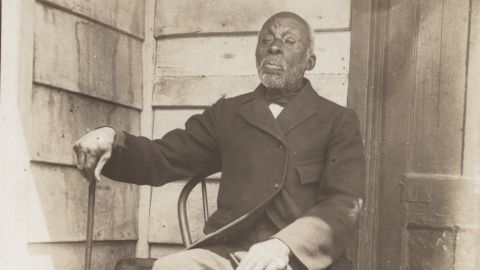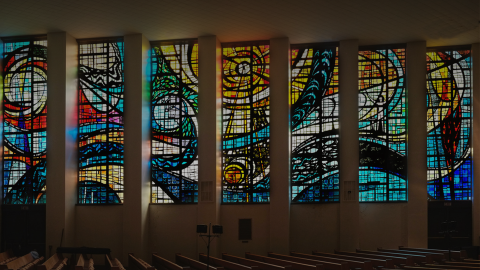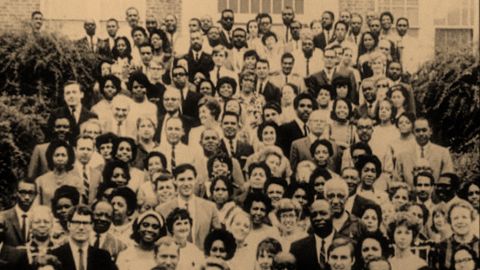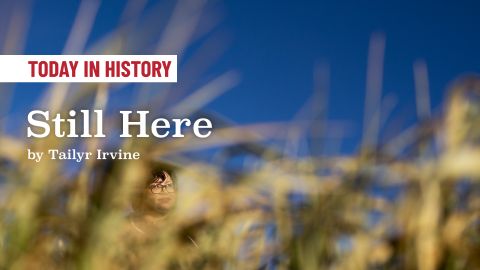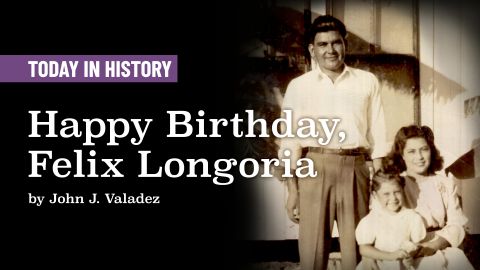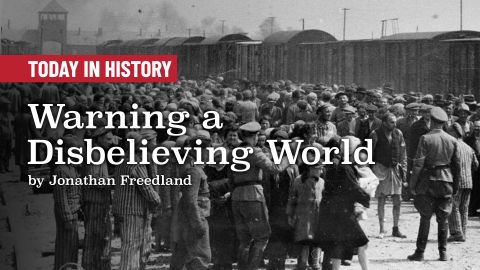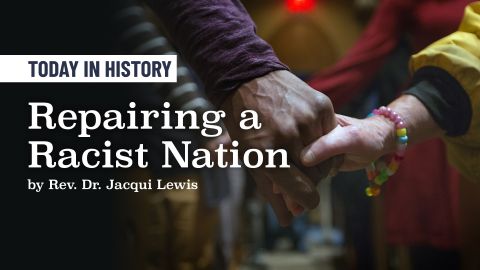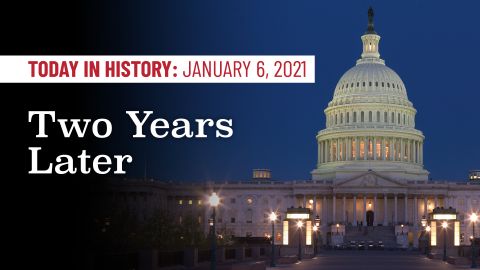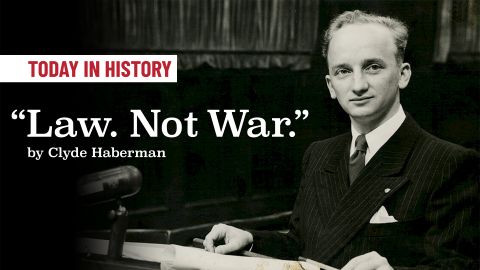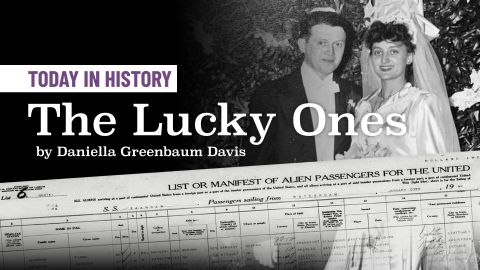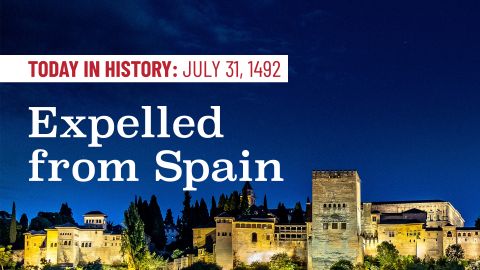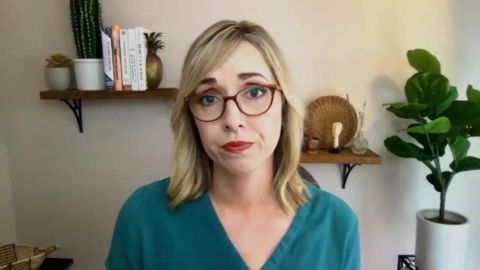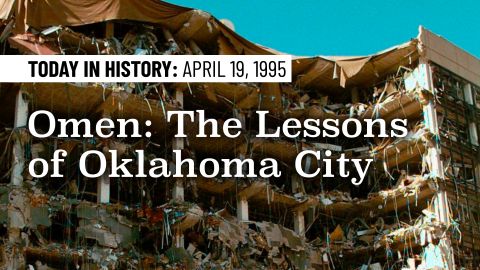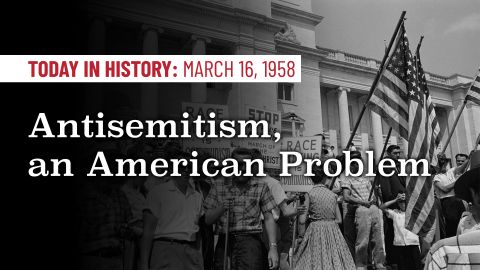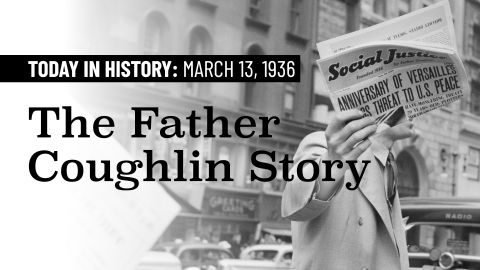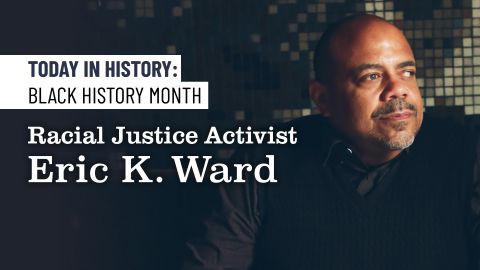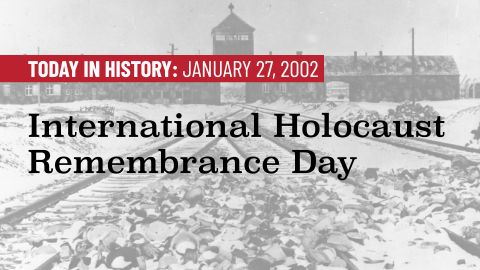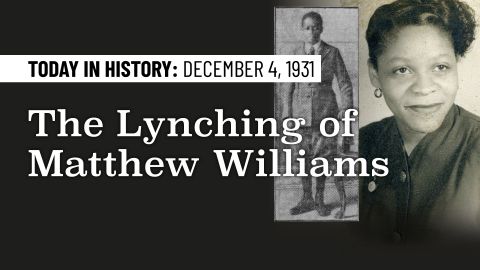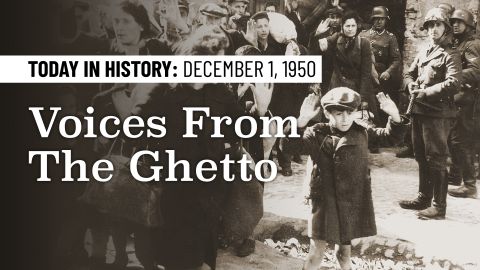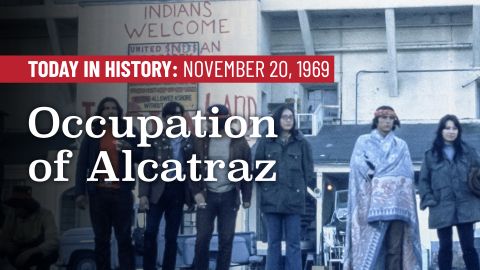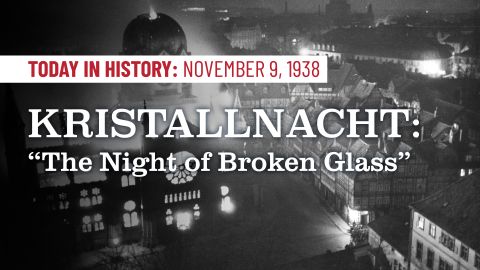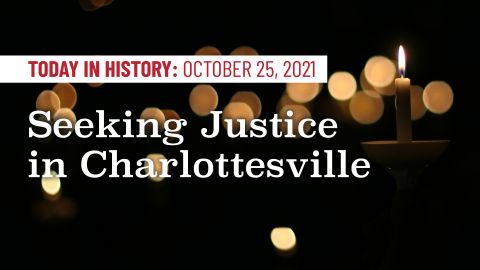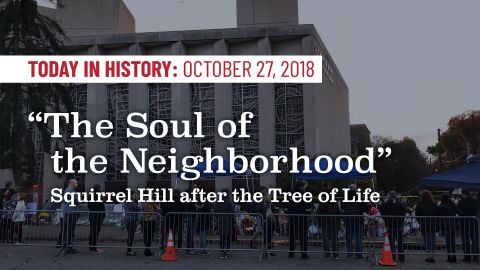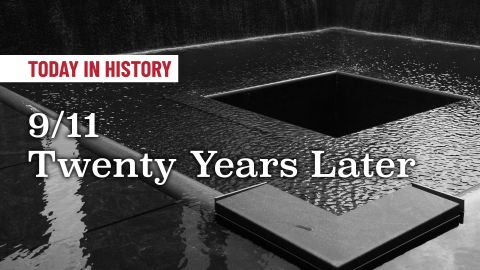A Message for My Son
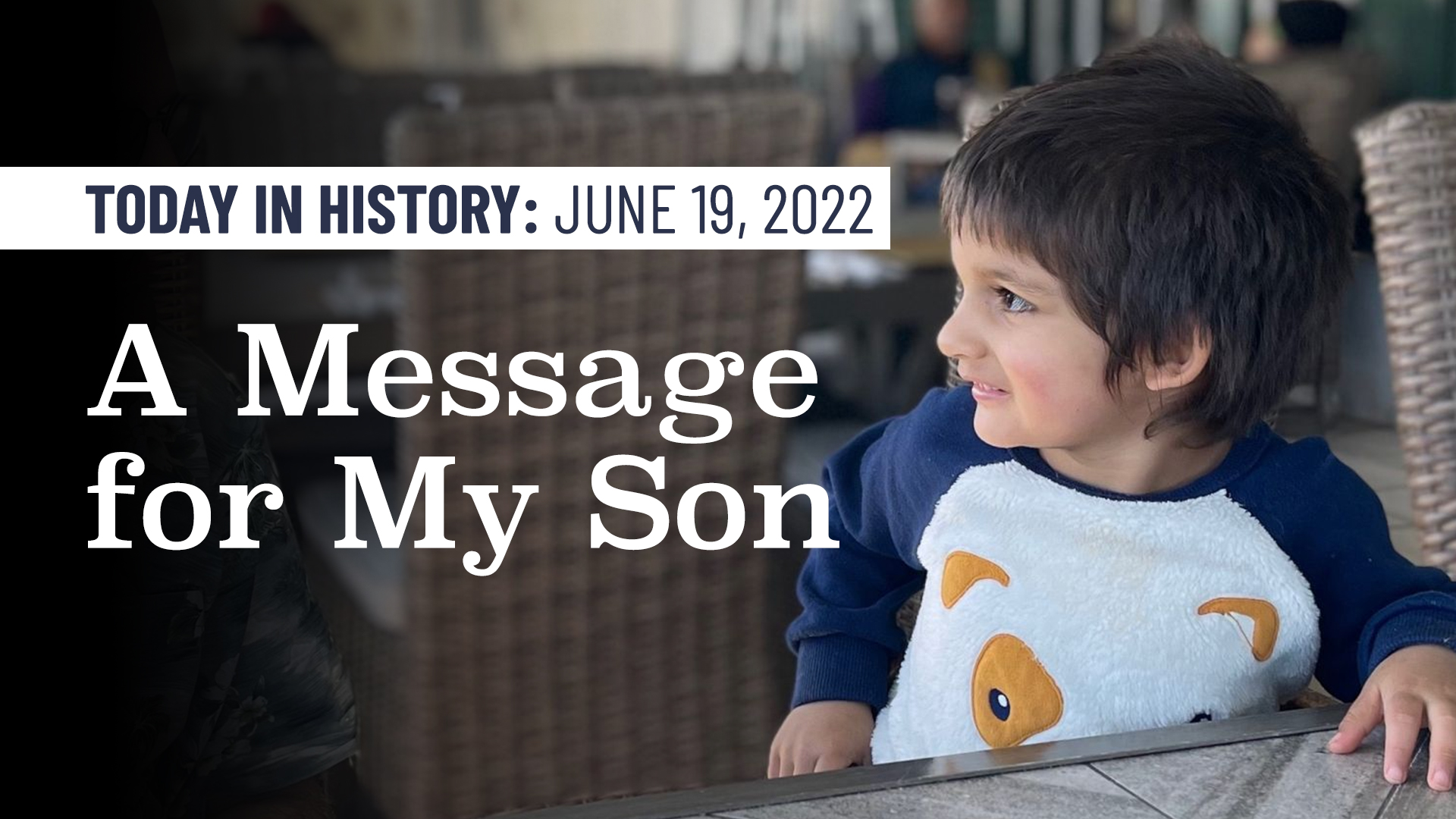
Hos Loftus was born in Tehran, Iran, and raised in a Muslim family. Today he is a neurologist living in North Carolina with his wife, Zainab, and their four-year-old son Jehan. After the attack on the Colleyville, Texas synagogue last January, Dr. Loftus wrote an essay about his experience with antisemitism in Iran and what he wants his American son to understand about hate. Our interview with Dr. Loftus and his essay are excerpted here for Father’s Day.
“There are plenty of things that I had to learn firsthand. It is for this purpose that I write this essay – to ensure that my son understands that hate is created, developed, and spread. And that he has the knowledge and resources to combat it for his generation.”
I was about 11 when one of the religious education teachers at my school in Iran gave me a small book as a gift. It was a collection of short novels and unsurprisingly, all were pro-revolutionary propaganda. One, though, stuck in my memory: it described a Jewish money lender, who took advantage of good Muslims in need, robbing them with exorbitant interest on loans. And how did I know what faith the victims practiced? Because, for good measure, the story included a good deal of religious debates about whose scripture was more authentic (shouldn’t be too hard to guess who won there).
Young as I was, I didn’t realize the raw antisemitism packaged in children’s language to influence impressionable minds. However, years later, as an adult, I confronted similar claims about all the money lenders being Jewish, and my comeback stemmed from the old days: What money lenders? Any names? Jewish money lenders were allegedly all over, but no one seemed to have met one. The surprise was because obviously, my Jewish playmates had parents whose occupations included physicians, merchants, and small business owners – but no money lenders.
Aside from this, I saw extremely foul antisemitism, expressed casually and with no apparent “trigger” among my own family. Rants could start during any kind of gathering. Often Jews were not identified by name but instead were referred to as “those people.” “Those people” held untold wealth and power and were guilty of all kinds of machinations against Muslims since the earliest days of Islam. Even as a young man, I felt more puzzled than upset or disgusted: what had “those people” done to the person starting the rants, to deserve such wrath?
“The initial reaction we saw after Colleyville from certain news media and politicians dismissing the element of antisemitism, was about as classical an example of antisemitism as it gets. And the fact that some people actually had the nerve to say that there was no connection tells you, you know, even in the U.S. how poorly understood antisemitism is.”
At the government level, they would go to any length to maintain the “we hate the Zionists, not the Jews” line – ad nauseam. Yet because the distinction is extremely vague, any Jewish person disliked by the regime for any conceivable reason would be labelled a Zionist – as if this hatred were more acceptable.
On the other hand, the regime’s propagandists were by no means above endorsing unadulterated, old-fashioned antisemitism – as evidenced by the case of the book I was “honored” to receive.

This overlap was nowhere more evident than in discussions about the Holocaust. Traditionally, the regime’s way of dealing with this topic was to sidestep it: no mention of gas chambers, disappearances of historic towns and neighborhoods, deportations in cattle carts, piles of shoes, and other personal effects belonging to the victims, the works. Mention any of this, and you would invite accusations of being under the thumb of “those people.”
Yet at the same time, they never ceased to honor and welcome western Holocaust deniers and antisemites including French author Roger Garaudy, American religious leader Louis Farrakhan, and David Duke.
As such, in 2005, when the regime under then-President Ahmadinejad switched to outright Holocaust denial, that surprised many western observers. To me, however, it was simply an open acknowledgment of what they had been their policy all along.
“I want (my son) to understand the history at a younger age than I did. I started learning only in my thirties. You look at the history of the Crusades, for example, and ask yourself: why is it that the first target of the Crusades were the Jews? Or ask yourself: why were the Jews subjected to pogroms when Europe was ravaged by the Black Death in the 13th and 14th centuries? What did the Jews have to do with all of that? What did the Jews have to do with any of those situations? Why was it their fault? And those are things that actually get you to think.”
Ahmadinejad certainly did me a huge, if unintentional, favor. There could be no stronger motivation to become a student of the history of antisemitism – from the ancient world where Jews were looked down on for having beliefs at odds with the majority Christian or Muslim communities; to the “scientific” race-based antisemitism of the nineteenth and twentieth centuries; to ultimately, the Holocaust. The January 2022 attack at the Colleyville, Texas synagogue, complete with hostage-taking and demands for the release of a convicted Islamist terrorist, was the textbook case of antisemitism: violence against Jews coupled with delusions about Jewish conspirators controlling all of the world’s money and power.
Is a future without antisemitism possible? For the tide to turn, ultimately, there will be no alternative but for the Muslim clergy to lead. It sounds like wishful thinking but it’s possible at least in theory. Other religions, both the Evangelical Lutheran Church (1994) and the Catholic Church (1965), have done exactly that.
“My hope for my son is that he will not forget today the legacy of his parents, where we came from. We came because we hoped to live in a different world. And I hope that that he understands why that was, and what and why we expect of him to not let our voices become silent once we are gone.”
This Father’s Day, my gift for my son is my effort to pass on to him this lived experience. My son will not be manipulated by teachers sneakily indoctrinating him while pretending to honor his high grades. But he needs to be aware that while in America, broadly speaking, antisemitism is frowned on, such is not the case everywhere in the world and in all cultures. Hopefully, when he comes across blatant antisemitism in his adulthood, he will confront it rather than try to sweep it under the rug.
Today in History features stories that probe the past and investigate the present to better understand the roots and rise of hate. The views and opinions expressed are those of the author

